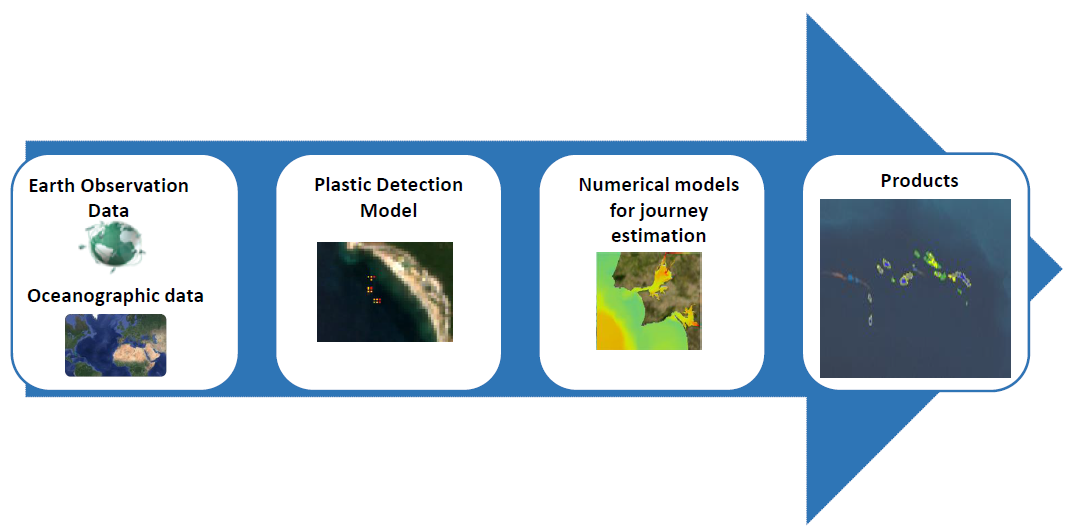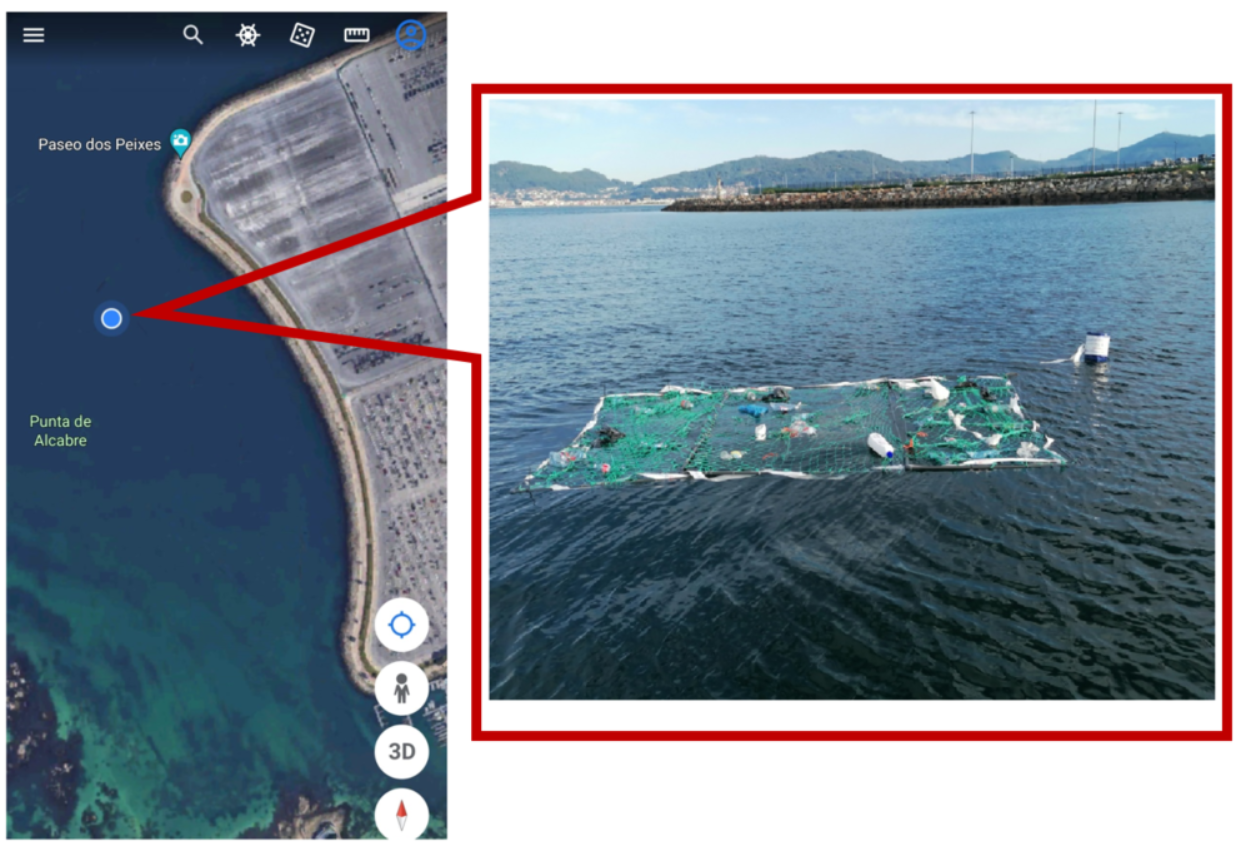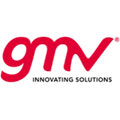Status
In progress
Description
Marine litter is a global problem that needs to be tackled urgently. Not only does it affect the health of marine animals, humans, oceans and consequently the whole planet ecosystem, but also it has a great socio-economic impact on human activities.
The objective of this study is to assess the technical feasibility and commercial viability of space–based applications in support of reducing environmental impact of marine litter in the form of plastics.
The consortium working on Plastic-Less Society theme, aims to develop services that combine satellite Earth observation data combined with oceanographic models to produce added-value information on marine pollution in the form of plastics.

This will allow having a clear picture about how litter travels over sea surface and which areas are prone to get more contamination due to the so-called convergence (areas where solid elements cannot escape) and, on the contrary, the areas where marine litter is not likely to get accumulated, due to divergence effect (areas where solid elements cannot be trapped).

Expected Results
- Evidence retrieval that verifies waste journey as well as traceability to the ultimate origin.
- Possibility to generate multispectral compositions from various spectral bands allowing to distinguish the most common types of plastics
- Possibility of temporal analysis, allows monitoring of changes occurring in the places of interest, as well as the ability to analyse data from the past
- Digital image processing allows the production and analysis of results in a fast and automated way
- Reduction of monitoring costs when compared to traditional monitoring methods (e.g. vessel surveys).
Contribution
- Innovative Port
- Green Port
Actual Status
The consortium completed the Business Case Review, with the Final Review approaching beginning of 2022. Currently, the consortium is performing tests in 2 different areas (Port of Vigo and Honduras) that can provide different challenges/conditions to the developing system.


